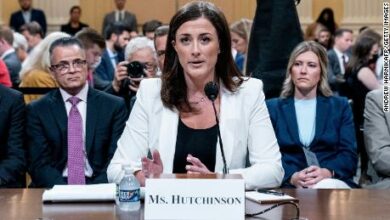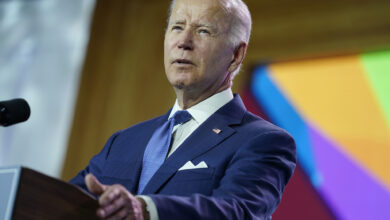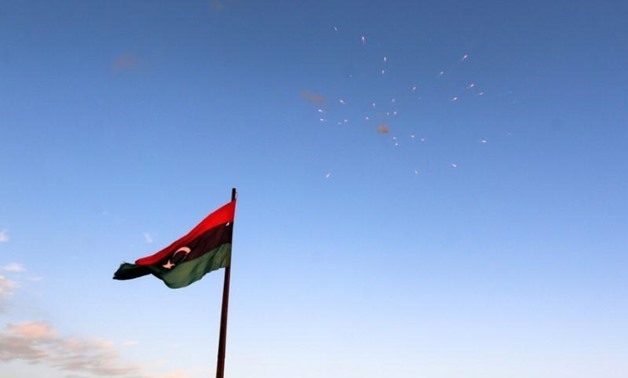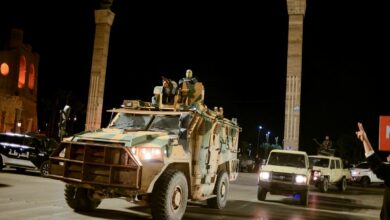Today’s papers are still running follow-ups to last week’s major stories, such as the prosecutions of former regime figures and the appointment of new governors.
Privately owned daily Youm7 runs what it calls exclusive transcripts of former Interior Minister Habib al-Adly’s interrogations. Those transcripts show that all the events of the revolution, from its start on 25 January, were recorded through video cameras placed at the Egyptian Museum and the Mugamma, the city’s administrative hub in Tahrir Square. The transcripts include a testimonial by Tarek al-Awady, the museum’s director, in which he said that the National Security apparatus took charge of the surveillance rooms in the museum during the revolution, and activated direct communication lines between the museum and the central command room of the security apparatus.
Al-Shorouk daily leads with a follow-up on yesterday’s accusations directed at Field Marshal Hussein Tantawi, head of the Supreme Council of the Armed Forces, the country’s interim ruler, by the lawyers of former President Hosni Mubarak. They accused Tantawi of being responsible for the communications blackout during the revolution. Military experts told Al-Shorouk that “Mubarak is attempting to settle his accounts with the Armed Forces, after they chose to side with the people during the revolution.” Al-Shorouk uses documentation it has from a previous case where an administrative court ruled that Mubarak, former Prime Minister Ahmad Nazif and Adly pay a fine worth of LE540 million for cutting communications during the revolution. According to this documentation, the Ministry of Interior put together an emergency operation in the Ramses call center to stop what the security apparatus defined as, “inciting groups using SMS services and the internet to proliferate chaos in Egypt.” Adly was in charge of evaluating the extent to which such communication services endangered national security, and in fact he ordered the emergency operation to cut all lines. This documentation out rules Tantawi’s possible involvement in cutting communications, according to military experts.
The new appointment of new governors, announced on Thursday, is still making headlines today. The party daily Al-Wafd leads with a story highlighting people’s disagreement with the “militarization” of the new governors, meaning that most new appointees have military and police backgrounds. The story focuses on the reaction to the appointment of Osama al-Fouly as governor of Alexandria, reporting that as a member of the formerly ruling, now dissolved National Democratic Party he is considered an undesirable figure. The story also mentions Adel Labib, who is returning to the governorship of Qena, where people complain that as he failed as governor of Alexandria he shouldn’t be brought back to their governorate. The state-run Al-Akhbar daily also focuses on the new governors and recounts how businessman Ashraf al-Saad accused the new governor of Minya, Serag Eddin al-Rouby, of proposing to take a bribe from him when the latter was head of Egypt's Interpol, a time when Saad, who is based in London, was facing various charges. “If the old regime was around, they would have appointed better governors,” Saad says. Privately-owned daily Al-Dostour picks on this particular story and leads with one of its classic headlines, “scandals in the new governors’ reshuffle.” Among those scandals is the fact that the new Daqahlia governor Salah al-Maadawy reportedly insulted the revolutionaries in the recent past.
Beyond the prosecutions of former regime figures and the interim government’s policies, columnists continue to provide a space for reflection on the current political transformation.
In Al-Shorouk Ibrahim al-Houdaiby offers a reading of the 29 July protest, which was predominantly a quest by Islamist forces to protect the “nation’s Islamic identity." This was exacerbated by SCAF’s decision to issue principles to govern the formation of the constituent assembly that will draft the constitution, a move perceived to be against Islamists who foresee a majority in parliament and hence an upper hand in the constitution drafting process. Houdaiby describes the threat to identity as a non-issue, especially as even secular forces are against SCAF’s ruling principles, primarily because they don’t want any military intervention in the country’s political future. Houdaiby worries that an imaginary conflict over the nation’s Islamic identity comes at the detriment of national unity and more urgent issues pertaining to toppling the former regime completely, the very regime that oppressed Islamists for years. The more serious problem, Houdaiby says, is that contending parties seek the protection of the military for their political aspirations, a return to square one as he describes it, where our politics intersect with the practices of security and military institutions. “Egypt’s Arab Islamic identity is bigger that its Islamic and nationalist movements,” he writes, calling on political players to let go of this anxiety and to focus on more tangible issues.
In what seems to be a segue to Houdaiby's thoughts, Wael Gamal, Al-Shorouk’s managing editor and a talented columnist, writes about the increasing rejection of party politics and the divergences they produce, which is the product of years of stifling political processes, he says. He mentions the example of 27 May, when secular forces called for massive protests in the face of an increasingly hegemonic Islamist current. Many activists called parties to remove their banners from Tahrir Square that day, saying that parties are only on the look for their own interests. Gamal comments on the anxiety to obtain full agreements on all issues of contention by all political players, which he deems impossible. “Building popular accord can only happen through divergences and conflicts. Only through parties that immerse themselves in their social bases’ interests, can the different political visions for our country’s future be crystallized.”
Egypt's papers:
Al-Ahram: Daily, state-run, largest distribution in Egypt
Al-Akhbar: Daily, state-run, second to Al-Ahram in institutional size
Al-Gomhurriya: Daily, state-run
Rose al-Youssef: Daily, state-run
Al-Dostour: Daily, privately owned
Al-Shorouk: Daily, privately owned
Al-Wafd: Daily, published by the liberal Wafd Party
Al-Arabi: Weekly, published by the Arab Nasserist party
Youm7: Weekly, privately owned




